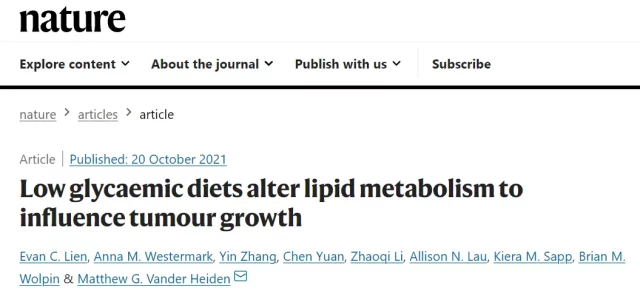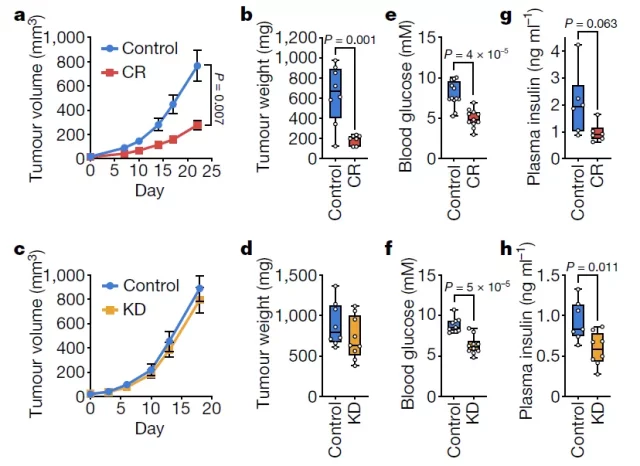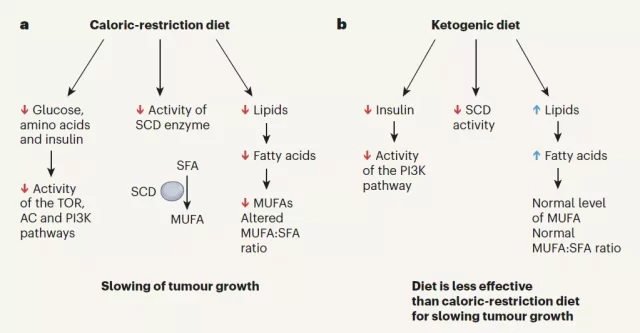Ketogenic diet can cut off lipid supply and inhibit tumor growth?
- WHO Releases Global Influenza Vaccine Market Study in 2024
- HIV Infections Linked to Unlicensed Spa’s Vampire Facial Treatments
- A Single US$2.15-Million Injection to Block 90% of Cancer Cell Formation
- WIV: Prevention of New Disease X and Investigation of the Origin of COVID-19
- Why Botulinum Toxin Reigns as One of the Deadliest Poisons?
- FDA Approves Pfizer’s One-Time Gene Therapy for Hemophilia B: $3.5 Million per Dose
Ketogenic diet can cut off lipid supply and inhibit tumor growth?
- Red Yeast Rice Scare Grips Japan: Over 114 Hospitalized and 5 Deaths
- Long COVID Brain Fog: Blood-Brain Barrier Damage and Persistent Inflammation
- FDA has mandated a top-level black box warning for all marketed CAR-T therapies
- Can people with high blood pressure eat peanuts?
- What is the difference between dopamine and dobutamine?
- How long can the patient live after heart stent surgery?
Ketogenic diet can cut off lipid supply and inhibit tumor growth?
The ketogenic-diet (KD)is a formula diet with high fat content, low carbohydrate content, and suitable protein and other nutrients.
When people are on a ketogenic diet, the body metabolizes to produce more ketone bodies(including acetoacetate, β-hydroxybutyrate, and acetone), which can be used as a source of energy.
Caloric restriction (CR)refers to limiting the total daily intake of calories and reducing total calories by 25-50% while providing sufficient nutrients such as essential amino acids and vitamins to ensure that malnutrition does not occur.
Studies have shown that calorie restriction can not only delay tumor growth, but also extend the lifespan of experimental animals.
These two diets are both low-glycemic index diets , because this diet does not raise blood sugar levels quickly after eating.
The low glycemic index diet can control the blood sugar level and insulin level to the lowest level, which is related to the inhibition of tumor growth in some animal models.
Therefore, the low glycemic index diet is believed to inhibit tumor growth, but other metabolisms related to this type of diet Whether the change affects tumor growth is not clear.
For most cancer patients, long-term low-glycemic diet is not allowed, because this will cause them to lose weight and muscle mass, which is not conducive to disease treatment.
But the ketogenic diet and regular simulated fasting have been carried out in clinical trials for cancer treatment. What are the effects of these dietary adjustments on cancer?
On October 20, 2021, Matthew Vander Heiden of the Massachusetts Institute of Technology and others published a research paper titled: Low glycaemic diets alter lipid metabolism to influence tumour growth in Nature .
This study found through mouse models of pancreatic cancer that only calorie restriction can inhibit tumor growth, while ketogenic diets cannot .
And further revealed the underlying mechanism: calorie restriction not only reduces the blood lipid levels in plasma and tumors, but also reduces the stearoyl-CoA desaturase (SCD) activity , resulting in cancer cells not being able to obtain lipids from the diet, but also It is difficult to produce by oneself, which leads to tumor growth restriction.
The ketogenic diet also reduces SCD activity, but it increases blood lipid levels, so cancer cells can get enough lipids through diet to grow and divide.
Using this feature of cancer cells can inhibit tumor growth by inhibiting the activity of SCD , which may represent a new direction for cancer treatment.

Cancer cells consume a lot of glucose, so it is thought that a ketogenic diet or calorie restriction may slow tumor growth by reducing the amount of glucose available to cancer cells.
The research team used pancreatic cancer mouse models to study these two diets and found that only calorie restriction can inhibit tumor growth .
Therefore, the research team guessed that these two diets reduced blood sugar levels and inhibited tumor growth. The role played is not big.
 Figure a: Calorie restriction diet significantly inhibited tumor growth; Figure b: Ketogenic diet failed to significantly inhibit tumor growth
Figure a: Calorie restriction diet significantly inhibited tumor growth; Figure b: Ketogenic diet failed to significantly inhibit tumor growth
The research team conducted further analysis and found the difference between the two diets: calorie restriction not only lowered blood sugar levels, but also lowered blood lipid levels, while the ketogenic diet only lowered blood sugar levels, but increased blood lipid levels.
Lack of lipids will limit tumor growth , because fast-dividing cancer cells need lipids to build cell membranes. When there is a lack of lipids in tissues, cells can make their own.
This manufacturing process needs to maintain a balance between saturated fatty acids and unsaturated fatty acids.
The balance is regulated by stearoyl-CoA desaturase (SCD) , an enzyme responsible for the conversion of saturated fatty acids into unsaturated fatty acids.
And calorie restriction not only reduces blood lipid levels in plasma and tumors, but also reduces the activity of stearoyl-CoA desaturase (SCD) , breaking the balance between saturated fatty acids and unsaturated fatty acids, and further weakening the survival of tumors. surroundings.
Although the ketogenic diet will also destroy the activity of stearoyl-CoA desaturase (SCD) , the ketogenic diet will increase blood lipids, thereby maintaining the ratio of saturated fatty acids to unsaturated fats at a level that is favorable for tumor growth.

Figure a: The metabolic changes brought about by calorie restriction can inhibit tumor growth; Figure b: The metabolic changes brought about by a ketogenic diet cannot inhibit tumor growth
In addition to the mouse experiment, the research team also analyzed the relationship between the dietary patterns and survival time of 1165 pancreatic cancer patients.
Preliminary findings showed that a diet with high fat content and low carbohydrate content may be related to longer survival time, but It is also related to the specific type of fat intake.
Although this study shows that calorie restriction can inhibit tumor growth, the author also pointed out that this diet is not necessarily suitable for all cancer patients , because the diet model of calorie restriction is difficult to adhere to.
If it can be adhered to, it will lead to weight loss. For cancer patients, weight loss may limit treatment options.
However, this study revealed that tumors are dependent on unsaturated fatty acids.
In the case of low blood lipid levels, inhibiting the activity of stearoyl-CoA desaturase (SCD) can cut off the ability of cancer cells to produce unsaturated fatty acids, thereby inhibiting Tumor growth.
The author believes that further research on how diet affects the metabolic changes that interfere with tumor growth, or can guide how to add diets or therapies that mimic such effects to existing cancer treatment strategies.

First author Evan C. Lien (left), corresponding author Matthew Vander Heiden (right)
Reference:
https://www.nature.com/articles/s41586-021-04049-2
Ketogenic diet cut off lipid supply and inhibit tumor growth?
(source:internet, reference only)
Disclaimer of medicaltrend.org
Important Note: The information provided is for informational purposes only and should not be considered as medical advice.



